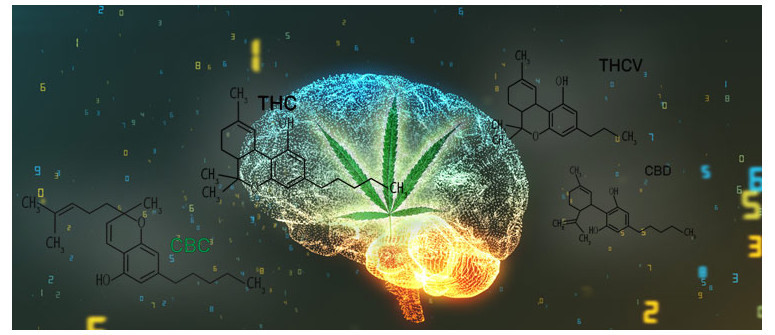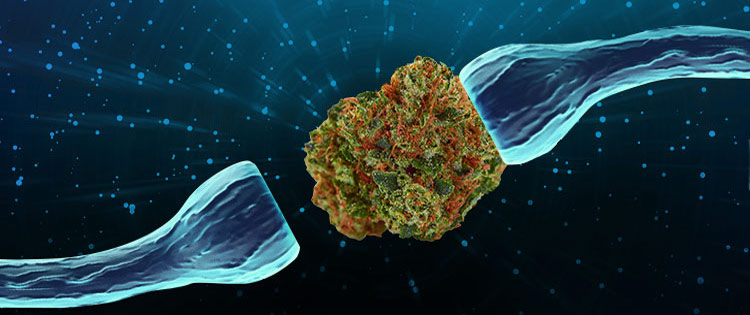What is clinical endocannabinoid deficiency?

An introduction of too many cannabinoids, or too few, could be the cause of several dangerous health conditions. A direct result of what's known as clinical endocannabinoid deficiency, several preliminary research papers appear to have found a link.
Clinical endocannabinoid deficiency (CECD) is a condition caused by an under or overproduction of the body’s own endocannabinoids. Without an equilibrium of endocannabinoids, we start to react negatively.
Initial studies by Dr. Ethan Russo in 2001 were the first of their kind to hypothesize that conditions like migraine and irritable bowel syndrome were caused as a result of endocannabinoid deficiency, and therefore, could potentially be treated by introducing phytocannabinoids (cannabinoids found in the cannabis plant).
WHAT CAUSES CECD?
Every mammal possesses an endocannabinoid system. Accountable for many regulatory functions, the ECS is stimulated by ingesting phytocannabinoids, thus triggering a reaction from CB1 and/or CB2 receptors.
The use of cannabis stretches beyond cultures, continents, and generations. Prevalent as a natural source of healing power for centuries, the widespread social stigma perpetuated by governments has all but removed legal access to cannabis for most of the world.
The result of this wholesale removal could be responsible for a spectrum of detrimental ailments, all linked to a condition called clinical endocannabinoid deficiency. Given that our bodies would have previously been heavily supplemented with cannabinoids, courtesy of cannabis available over the counter in the 1800s through the early 1900s, the complete removal is theorized to have impacted us quite significantly.
Dr. Russo’s theory was that the treatment of these symptoms stemmed from provoking specific receptors. Given that cannabis was included in the human diet for centuries, there is an argument that the increased frequency of modern symptoms like migraines is a direct result of a lack of cannabinoids in the body.
Our bodies do produce endocannabinoids on their own accord: anandamide and (2-AG), both of which are linked to a number of beneficial physiological effects.
Careful regulation of these endocannabinoids supports homeostasis, a way for the body to achieve a natural sense of balance. Spikes in either of these endocannabinoids could impact the body as much as declines, so maintaining a balance can prove difficult without external supplements.
HOW DOES CECD AFFECT US?
Unfortunately, preliminary research points to several conditions experienced as a result of endocannabinoid deficiency. Those include PTSD, irritable bowel syndrome, migraines, and fibromyalgia. All carry severe repercussions for sufferers, ranging from intense periods of pain, diarrhea, or even disturbing flashbacks.
All of the research undertaken for these conditions had something in common: the introduction of cannabinoids either limited or reduced the frequency of sufferers’ symptoms. This led the authors to theorize that the conditions could all be the result of an endocannabinoid deficiency.
HOW CAN CANNABIS SUPPORT CECD?

Two of the most significant cannabinoids in cannabis are THC and CBD. Both achieve very different results when consumed, but both provide a remedy in their own way. THC is similar in some respects to anandamide. As such, THC could act as a substitute or supplement for those who lack a natural production of the endocannabinoid.
That being said, too much THC consumption can lead to bouts of increased paranoia or anxiety in some users. Again, it comes down to striking that balance between too much and too little of any one cannabinoid.
Another reason CBD is used is due to its natural synergy with THC. CBD is believed to mediate and lower the psychoactive ceiling of THC, especially where CBD content is significant. While each condition previously mentioned cannot necessarily be cured by cannabis, introducing cannabinoids may prove to be quite beneficial.
MORE RESEARCH IS NEEDED
It is still not known what exactly causes endocannabinoid deficiency.
The overarching theme is that the introduction of cannabinoids positively impacts certain conditions, but the variables in each situation make it difficult to offer an accurate summary.
Further, detailed research will hopefully enable doctors to make a more precise prognosis and confidently recommend cannabinoids through the introduction of CBD or THC-rich products.




